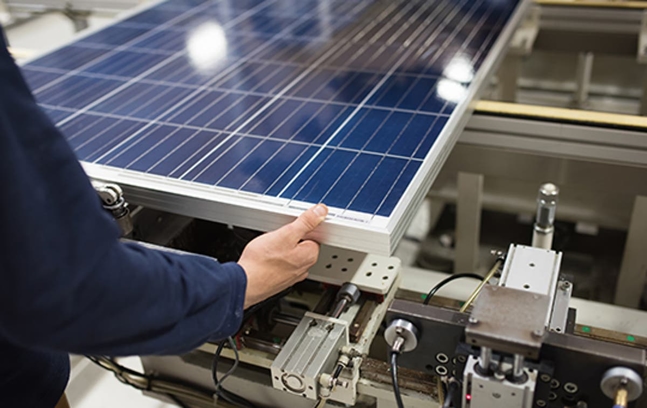When it comes to outsourcing the production of solar panels and equipment, a company must know its supply chain. Roughly 25 million people worldwide are victims of forced labor. Without consciously putting forth policies and practices to vet one’s supply chain, a business can unknowingly be complicit in labor abuse. The human rights abuses of hundreds of thousands of Uyghur Muslims in the Peoples Republic of China served as a stark reminder of just how important it is to know where your products are sourced and how. In Xinjiang, where about 45% of the global supply of solar-grade polysilicon comes from, it was revealed that Uyghur Muslims were being held under forced labor to make these products. Polysilicon is one of the main components of silicon-based solar cells.
When goods are sourced and then produced in places far from where they are purchased, there can be little insight into the working conditions for the people manufacturing and assembling them. After learning of the forced labor conditions in Xinjiang, at least 175 solar companies signed a pledge by the Solar Energy Industries Association opposing forced labor. This was part of a solar industry-wide effort supporting traceability in the supply chain. Other measures taken include the U.S. banning solar goods made in the Xinjiang region.

Consumers have every right to ask where products are sourced from when making a purchase. In our prioritization of people and planet, Positive Energy Solar has carefully vetted our supply chain and ensured that our products are made ethically. The solar panels we choose to install are made by REC and LG. REC manufactures its products in Singapore and Norway. In keeping its commitment to integrity and corporate ethics, REC has strict policies in place and zero tolerance towards human rights violations and any kind of workplace abuse whatsoever. In the spirit of transparency, we welcome you to read more about REC’s efforts to ensure ethical business practices from top to bottom and the policies they have to avoid human rights violations in their operations and supply chain.
LG makes all of its solar panels in-house. They have their own manufacturing facilities in Gumi, South Korea, and Huntsville Alabama where they’ve added over 200 direct jobs to the local community. After hearing of the human rights violations in Xinjiang, LG and REC confirmed their stances against human rights violations and workplace abuse in their supply chains. You can read both statements here.

Carefully screening our supply chain and choosing to work with companies that share our values allows us to have a positive impact on those we serve from manufacturing to installation; giving you the peace of mind that you have the best, most ethically sourced, solar equipment available. This approach keeps us accountable for our actions and therefore our impact as a company that is in the business of taking action on climate change.
Alejandro N. Mayorkas, U.S. Homeland Security Secretary, stated “Our environmental goals will not be achieved on the backs of human beings in a forced-labor environment”. The fact of the matter is that no environmental or climate justice can be achieved at the expense of human rights. When we commit to doing what’s right by the planet, we must also commit to doing what’s right by those who occupy it. Anything else is pure hypocrisy.
At Positive Energy Solar, we take pride in providing New Mexicans with solar energy sourced from companies committed to doing business with integrity and transparency. That’s using business as a force for good. If you are interested in learning more about our products and services, contact us! Consultations are always free.

